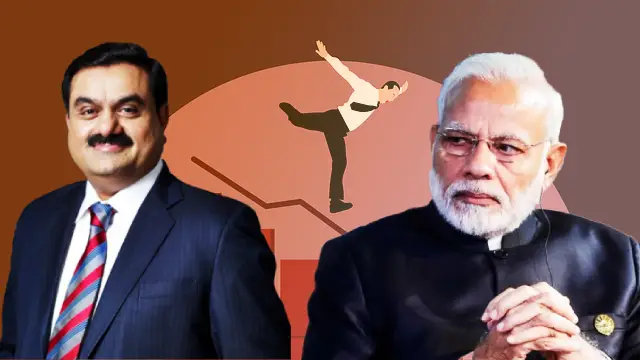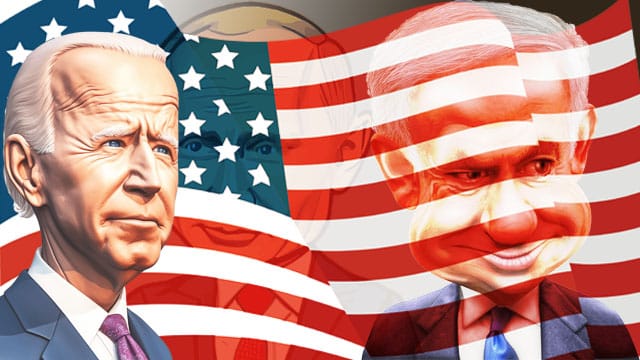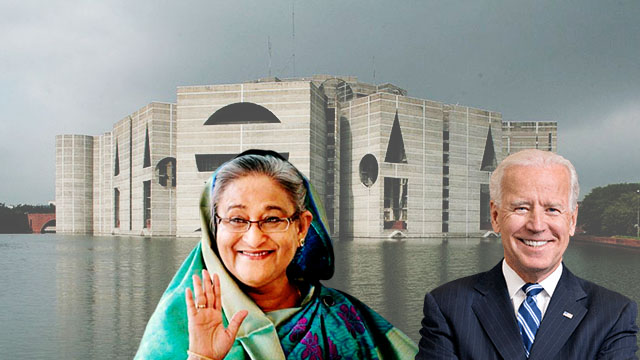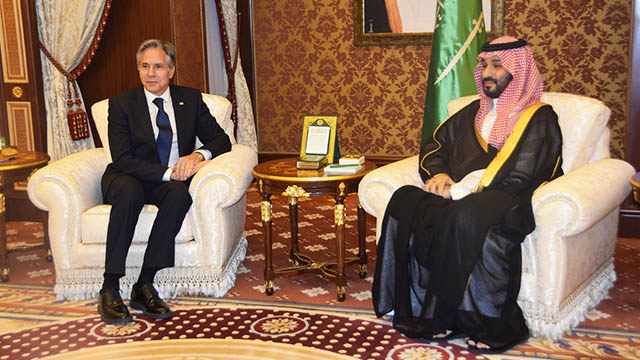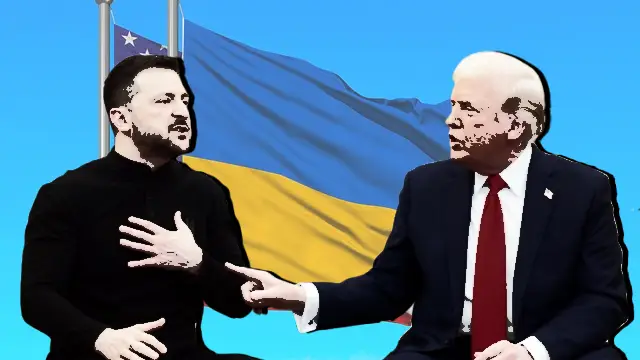Ever since Indian Prime Minister Narendra Modi’s far-right Bharatiya Janata Party (BJP)-led coalition managed to sweep the provincial elections in the western state of Maharashtra on November 23rd, the Indian mainstream media has been constantly discussing various aspects of this victory. However, in doing so, the mainstream media has minimised its coverage of Gautam Adani’s indictment in New York over his and his accomplices’ alleged involvement in a bribery and fraud case.
According to the US authorities, Mr Adani, who is one of the richest Indian tycoons perceived very close to Mr Modi and the BJP, and seven other defendants, including his nephew Sagar Adani, and Adani Green Energy Ltd’s former CEO Vneet Jaain, are accused of paying bribes to Indian officials worth $265m to win solar power supply contracts in several states of the country at above market rate and then using such contracts to raise $750m from the market, including $175m from the US.
Adani Green estimated profits of over $2bn from the supply contracts for over 20 years and planned to raise $3bn. However, Gautam Adani and Sagar Adani had concealed the corrupt deals from their American investors.
This is why Gautam Adani, Sagar Adani and Jaain have been charged with securities fraud, securities fraud conspiracy and wire fraud conspiracy, and the uncle-nephew duo has also been charged in a US Securities and Exchange Commission civil case.
According to news reports, the other five defendants have been charged with conspiring to violate the Foreign Corrupt Practices Act, a US anti-bribery law, and four of them have been charged with conspiring to obstruct justice.
But why is Mr Adani’s indictment in New York no longer making headlines in the Indian mainstream media?
Why, despite a sharp fall in its share prices—albeit not like in early 2023, when American short-seller Hindenburg Research’s investigative report on Mr Adani’s alleged stock market manipulations made his port-to-power conglomerate’s stock prices bleed and dented his fortunes—and political upheaval, Indian media, the BJP, which otherwise defends Mr Adani and the conglomerate itself has not shown any vigorous activities, unlike 2023?
Confidence behind the silence
When the US-based short-seller Hindenburg Research published its 400-plus page report on Mr Adani’s involvement in alleged stock market manipulation along with his brother Vinod Adani, the stock prices crumbled and Mr Adani, understanding the gravity of the situation, had to come ahead and defend himself using “nationalism” as a shield.
He identified himself with India and criticism of his business practices—or malpractices—as those targeting India’s “economic growth”, a cue that the BJP spokesperson, Ravi Shankar Prasad, picked up to defend the capitalist the Opposition accuses of having a strong influence on Mr Modi’s government.
It was not quite difficult to blame “foreign” forces then, and moreover, Mr Adani managed to stay afloat through the US-based GQG, owned by Rajiv Jain, which invested heavily in the conglomerate’s stocks from March 2023 onwards to raise their prices and stabilise the empire.
Now, even GQG, which has investments up to $4.5bn in the Adani Enterprises, has seen a sharp 19% drop in its share prices on November 21st, following Mr Adani’s indictment in New York. Still, in a bid to safeguard the conglomerate, GQG is again buying back shares citing the “undervalue” of its stock prices.
GQG’s actions also exemplify why India’s ruling BJP isn’t vociferously defending Mr Adani when it has a record of doing so on even mundane matters. The reason is their confidence in Adani and their collective faith in the conglomerate’s ability to turn the tide in its favour.
And where does that confidence come from?
The confidence comes from the fact that Mr Adani is closely linked with the collective geopolitical interests of India and the US in not just the Indo-Pacific war theatre but also in West Asia.
Without Mr Adani, the overall US-India partnership against China may suffer a setback. So Mr Adani’s indictment in New York can’t really impact the tycoon or Mr Modi, as long as there is their ‘messiah’ in Washington DC.
Will Trump end Adani’s indictment in New York?
Enthralled by Donald Trump’s victory in the recent US presidential elections, Mr Adani not only congratulated him on X (formerly Twitter) but also promised an investment of $10bn in the US—without a timeline—energy and infrastructure sector with a potential to create 15,000 jobs in that country.
The tweets are not mere formalities, but a bid to influence the US president-elect who is known to be a close ally of Mr Modi.
Mr Adani knows that after his administration takes over, Mr Trump can reverse several decisions of the Democrat administration and even fire the current prosecutors who are chasing him.
Moreover, he knows that the Indian government will do everything to protect him from extradition in the next two months until the Democrats are in power.
It’s very unlikely that Mr Trump’s administration would pressurise India for Mr Adani’s extradition.
Although India and the US have extradition treaties in place, it’s also unlikely that India will hand over Mr Adani before January 2025 to the US authorities even if an arrest warrant is issued against him in New York.
On the one hand, the bureaucratic process will delay the extradition process and, on the other, Mr Modi can prevent the ignominy by filing a case against Mr Adani in India—where he can easily secure a bail—and defer handing him over to the US.
Rather, the Trump 2.0 administration can use Mr Adani’s indictment in New York to bargain with Mr Modi’s government for more concessions in the Indian market and squeeze more investment deals.
In return, Mr Adani also gets more share in the pie of Indo-US cooperation in multiple sectors to deter China’s rise.
Why the US needs Adani?
Mr Adani’s indictment in New York can be considered a minor glitch in overall Indo-US relations. Mr Adani is a resource for not just Mr Modi, but also for the US-led collective West in its overall “Indo-Pacific” strategy.
Like the Chinese, India wants to build a chain of ports around the subcontinent, from the Arab Sea to the Bay of Bengal. Adani Ports and Logistics owns and operates 13 ports in this region, across several Indian states.
Moreover, Adani Ports and Logistics also owns a majority stake in Israel’s Haifa Port, which is a doorway to connect the ambitious multi-modal India-Middle East-Europe Economic Corridor (IMEC) project.
The IMEC, planned by India and the US, plans to connect South and South East Asia with Europe through a network of ships and railways for faster transport of goods, data and energy. Adani’s Haifa Port will play a key part in it and Mr Adani is reportedly discussing opportunities to buy ports in Greece and Italy, which can become doorways to Europe for the project.
Apart from the IMEC project, considered an alternative to the Belt-Road Initiative of China, Mr Adani has also ensured strong cooperation with the US-backed Israeli forces. Adani Defence and Aerospace has collaborated with Israeli defence corporation Elbit Systems to manufacture the killer drone “Hermes 900” used by the Zionist forces against the civilians of Gaza and Lebanon.
Adani’s military-industrial business has also collaborated with Israel Weapon Industries to manufacture machine guns and rifles in its Madhya Pradesh-based factory.
It’s unlikely that Mr Trump, whose campaign has been heavily funded by the pro-Zionist lobby in the US, will jeopardise the India-Israel defence ties, whose main axis is Mr Adani, by using the tycoon’s indictment in New York.
What does Adani’s indictment in New York mean for India?
Mr Modi’s government has always stood in solidarity with Mr Adani, with whom the prime minister shares some personal bonding, his critics allege.
It’s not just that the BJP has defended Mr Adani during the Hindenburg Research report, but it has also vehemently opposed parliamentarians who have criticised Mr Adani, including Congress leader Rahul Gandhi and Trinamool Congress’s Member of the Parliament (MP) Mahua Moitra.
Ms Moitra even lost her MP’s position in the last Lok Sabha, following a series of allegations that the Opposition called were used to “frame her”.
Mr Adani’s conglomerate already owns India’s key resources, from airports, ports and energy supplies, which the Opposition allege. It’s for Mr Adani’s business interests Mr Modi’s government has even jeopardised India’s relations with Bangladesh, Kenya and Sri Lanka.
In these circumstances, if Mr Adani’s indictment in New York court leads to an issue of even a warrant against the tycoon, it won’t materialise into any sort of prosecution. However, what would come out highly pronounced is that Mr Modi’s government is working as an appendage of an oligarch, or an oligarch pulls the strings in Indo-US relations and controls New Delhi’s internal and external policies, impacting its long-term interests.
Tanmoy Ibrahim is a journalist who writes extensively on geopolitics and political economy. During his two-decade-long career, he has written extensively on the economic aspects behind the rise of the ultra-right forces and communalism in India. A life-long student of the dynamic praxis of geopolitics, he emphasises the need for a multipolar world with multilateral ties for a peaceful future for all.

